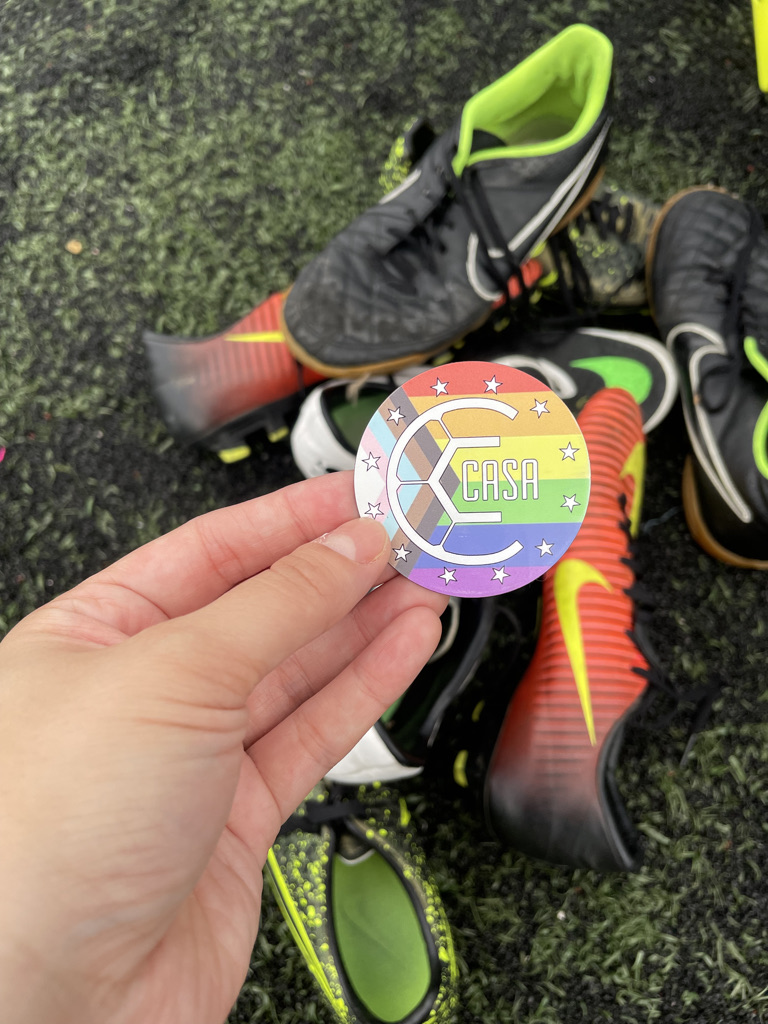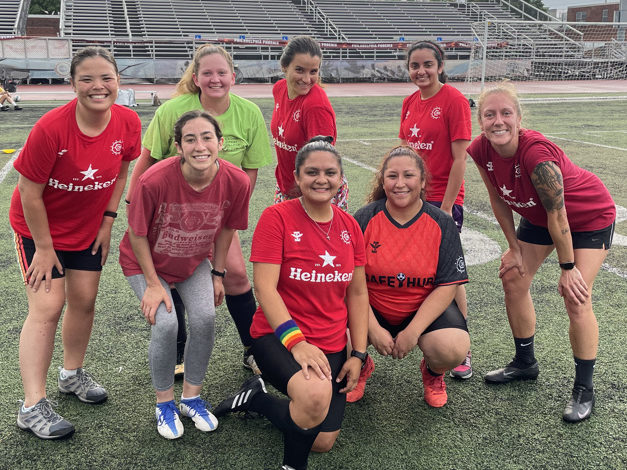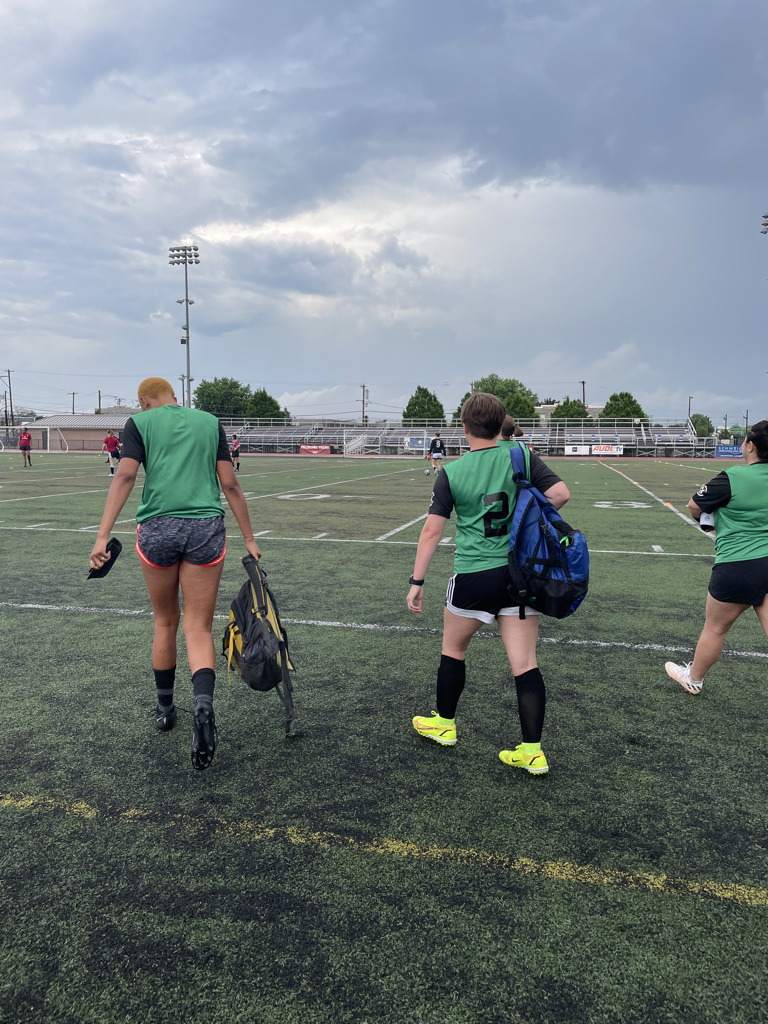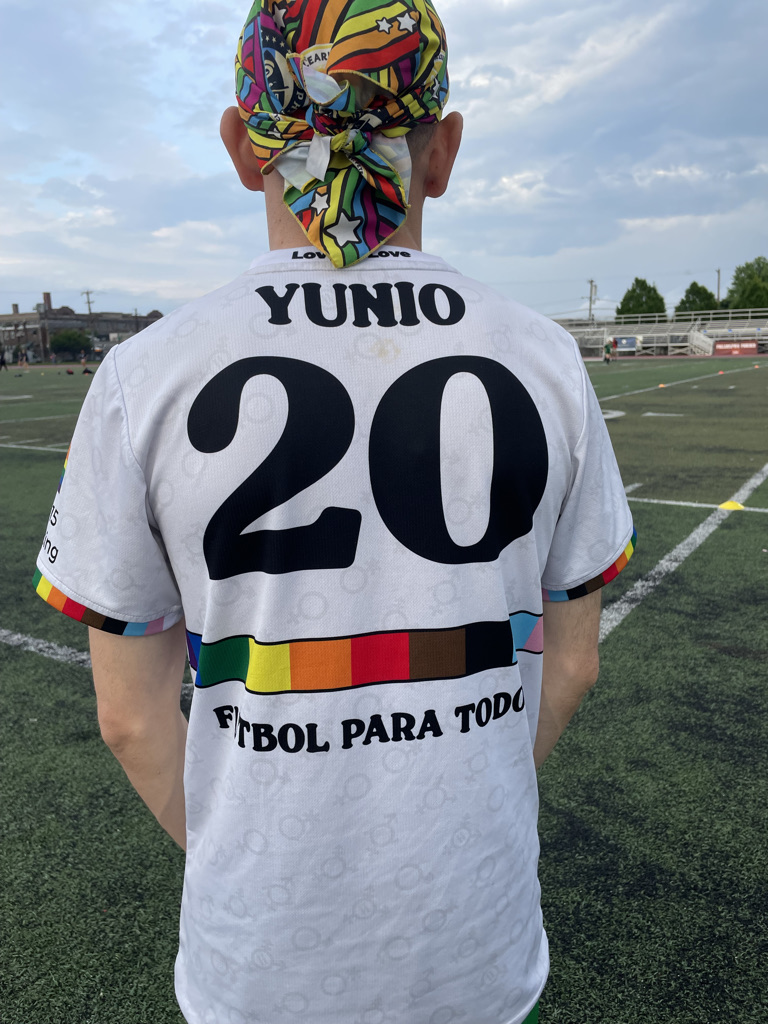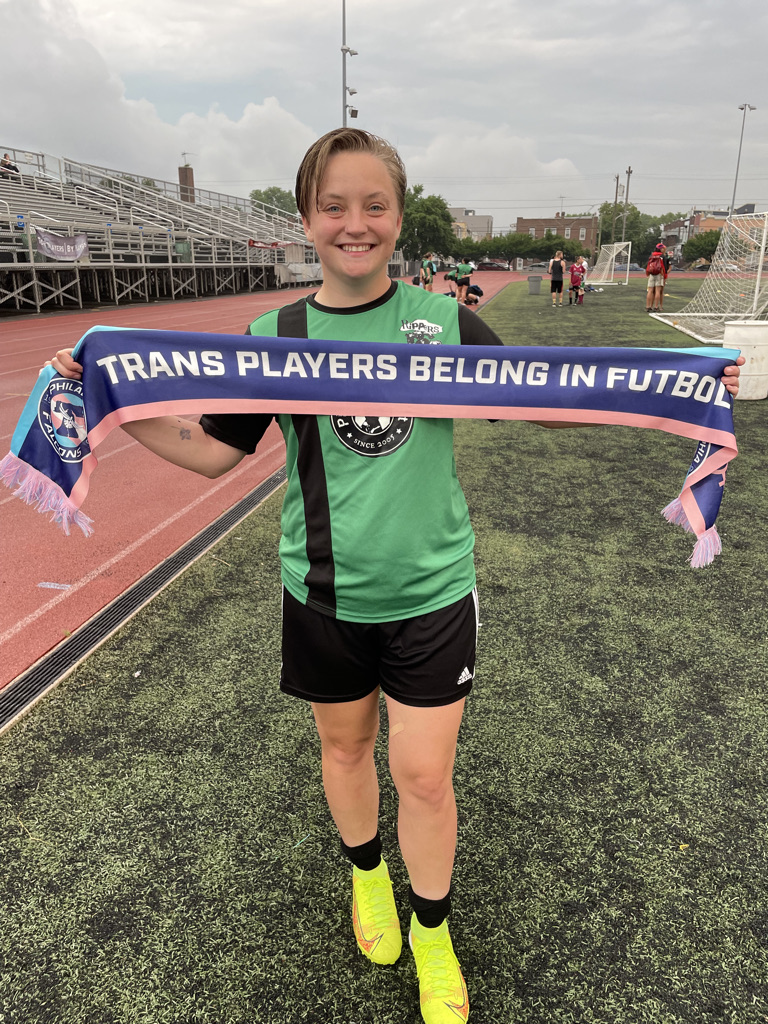Erin McLeod on Pride & Athlete Ally
Erin McLeod is a goalkeeper for the NWSL’s Orlando Pride and Canadian national team. She is a 2020 Olympic Gold Medalist. Along with many of her teammates, Erin joined athletes all over the country by supporting Playing for Pride throughout the month of June (and beyond!) to benefit Athlete Ally.
Why did you decide to support Athlete Ally’s Playing for Pride campaign this year?
This year – more than any year, for sure – there has been an attack on trans youth. It’s a scary time in the U.S for a lot of reasons, but I think it’s really important for young people to see people who are like them, whether that’s on TV or [elsewhere]. Representation is huge and visibility is massive and I think as professional athletes, especially female professional athletes or trans athletes, we have this opportunity to be visible to be relatable, to be reachable. At a lot of professional sports games you get to actually meet the players and that’s kind of a unique situation. So I always think that it is important for people to see someone who is like them. It means that anything is possible, that they can be authentically themselves. [Things like sexual orientation and gender] can be challenging and fragile, and there’s a lot of pressures from society, so I think as professional athletes we have this opportunity to stand up for what we believe in and for young people to see that they are not alone is incredibly important.
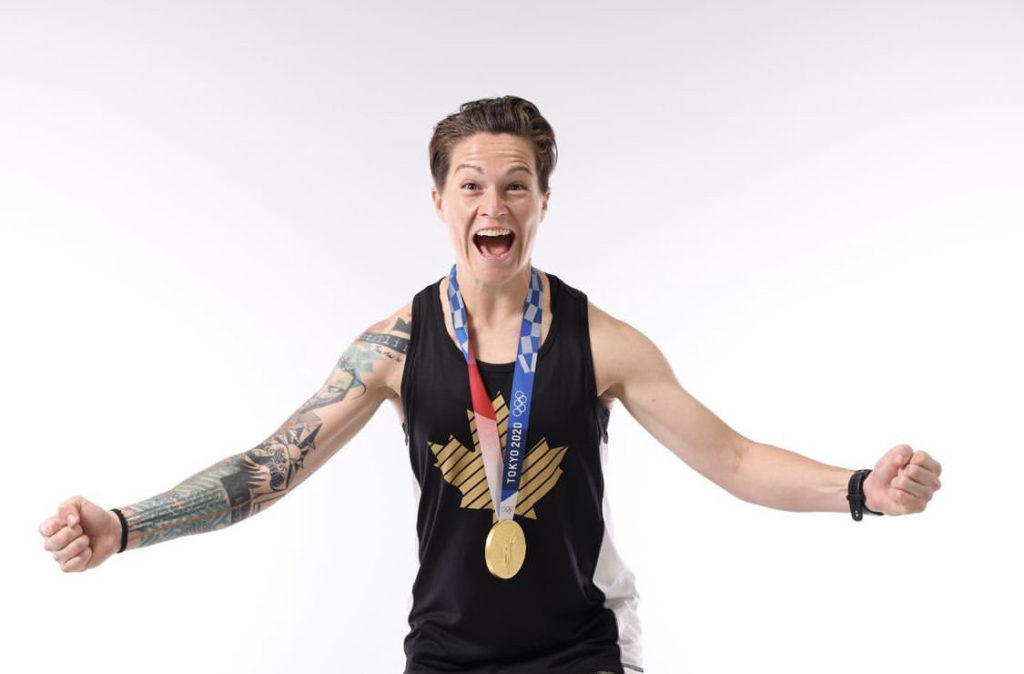
Representation is huge and visibility is massive and I think as professional athletes, especially female professional athletes or trans athletes, we have this opportunity to be visible to be relatable, to be reachable.
Erin McLeod
Why is it important to celebrate Pride?
Kind of along those same lines! For me, the first time I went to a Pride parade was in Toronto a million years ago. When I was first struggling with my sexual orientation I was worried because I had pictured having this family and children and I thought that if I didn’t end up with a man that I would have to sacrifice all of that. I remember watching that Pride parade and there was a section of families. Two moms, two dads and for the first time I felt this sense of relief that I could live an authentic life, be true to who I am and also have a family. So that was a huge moment. That visibility I think is incredibly powerful. More than anything, I think in life sometimes the hardest thing is to be who you are. So if you can just be that and love who you want I think that is powerful and something to really celebrate.
Why is it important to support the LGBTQ+ community?
As I mentioned before, trans youth is getting hammered. There are so many politicians that are trying to create a lot of laws and limitations on trans youth, and trans people in general. It’s hard enough to be who you are even if you’re straight! So to be who you are and to figure out how you identify, your gender expression, your gender identity, to find out your sexual orientation, all of these things, it is a process. Straight people are still not coming out to their parents and until that happens, it is still not the norm of society so I think it’s important to help those people feel loved for being who they are. Love is really the most important thing in the world. And the way I see love is it’s unconditional and it doesn’t discriminate. So why should we?
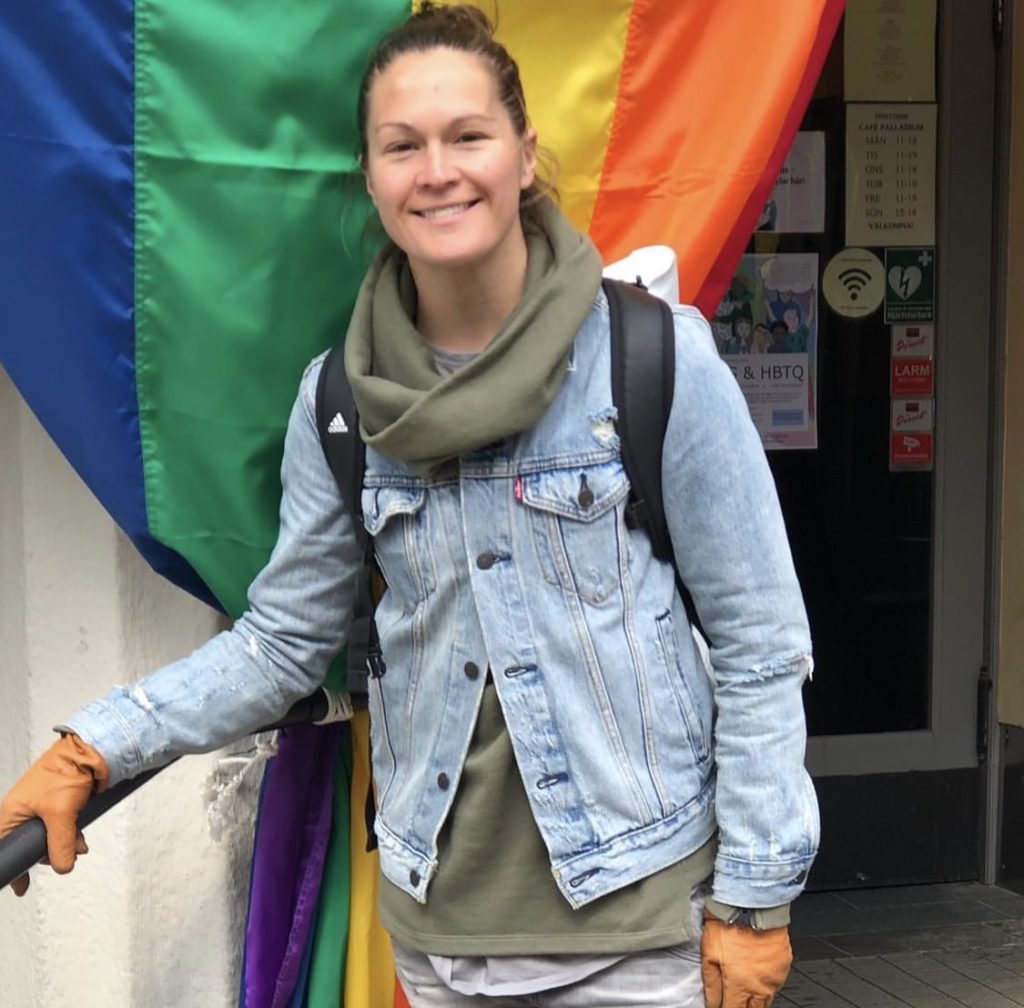
Love is really the most important thing in the world. And the way I see love is it’s unconditional and it doesn’t discriminate. So why should we?
Erin McLeod
Why is it important to use your platform to support and uplift LGBTQ+ rights?
As someone who identifies as a gay cisgender woman, I think it’s important to be who I am and not have to hide any part of me because in life we can choose to live a life of love and abundance or fear and scarcity and I think a lot of times, right now anyways, society is making people feel afraid to be who they are and I feel like real happiness is only reached when you are authentic. So it’s important to speak for those who don’t feel comfortable speaking and I also think it’s important for people to understand that all of these labels are labels and at the end of the day we are just dealing with human beings. The end of ignorance is education and for people like myself to use our platform to educate.
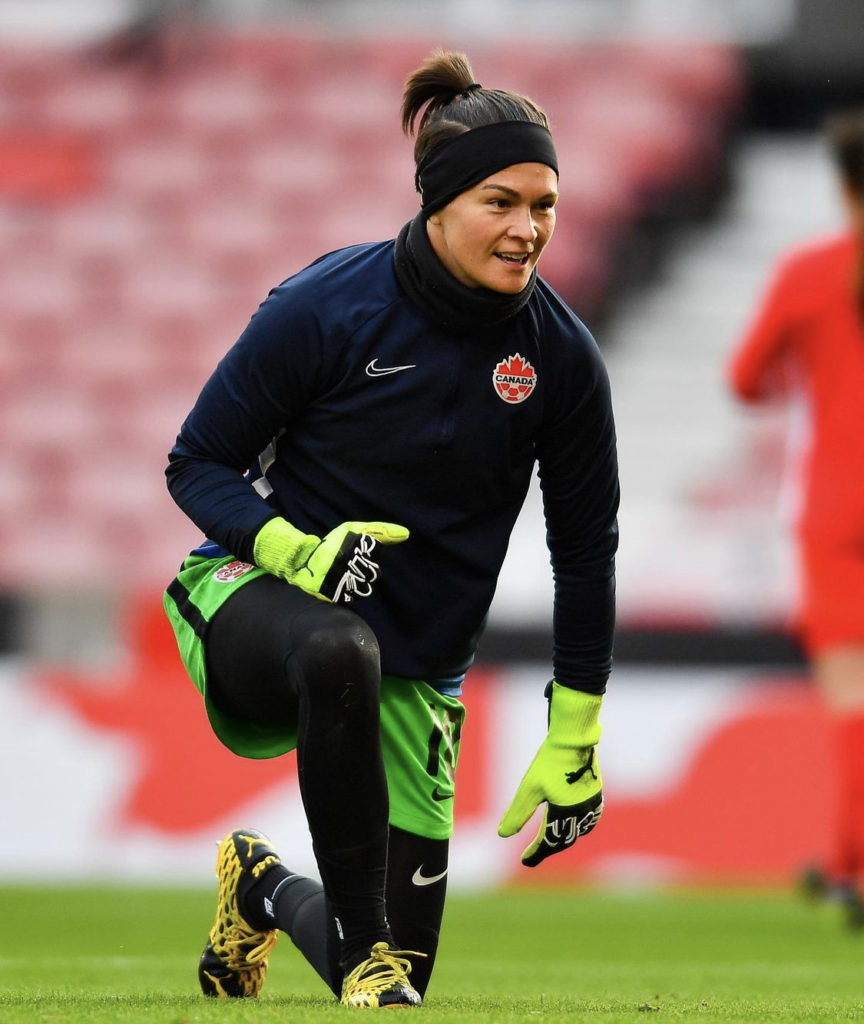
The end of ignorance is education and for people like myself to use our platform to educate.
Erin McLeod
About Athlete Ally
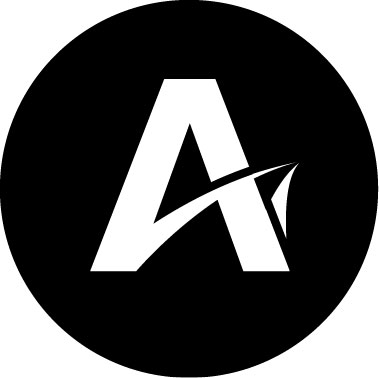
Athlete Ally is a nonprofit organization that uses the power of sport to uplift and end discrimination against the LGBTQI+ community. The organization believes that everyone should have equal access, opportunity, and experience in sports — regardless of sexual orientation, gender identity or gender expression. Their mission is to end the rampant homophobia and transphobia in sport and to activate the athletic community to exercise their leadership to champion LGBTQI+ equality. Learn more about Athlete Ally and how to support their incredible work here.

